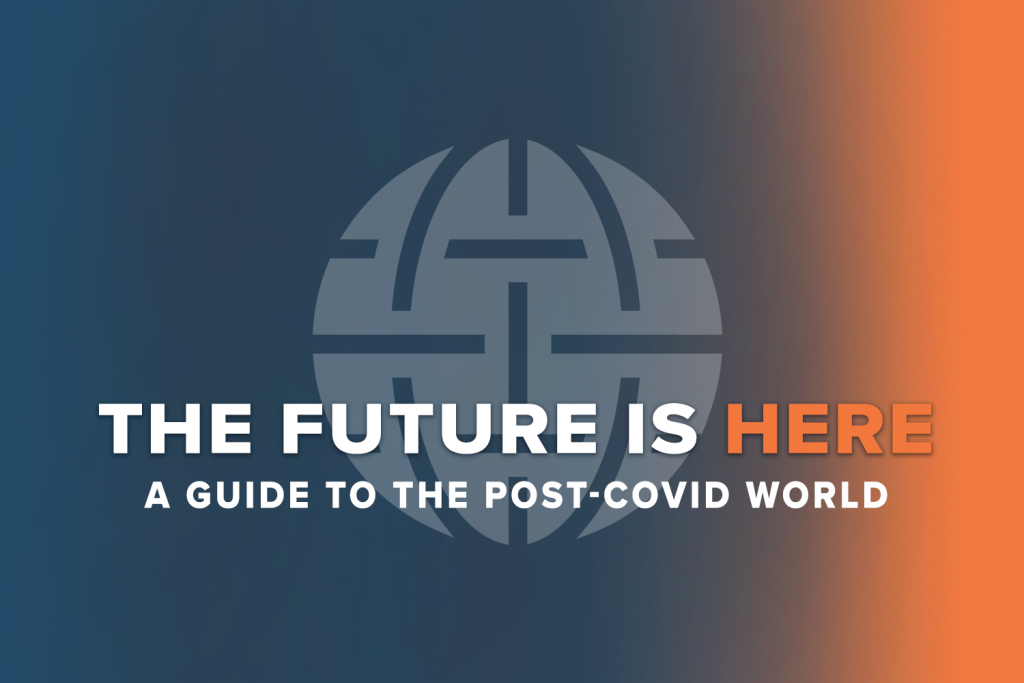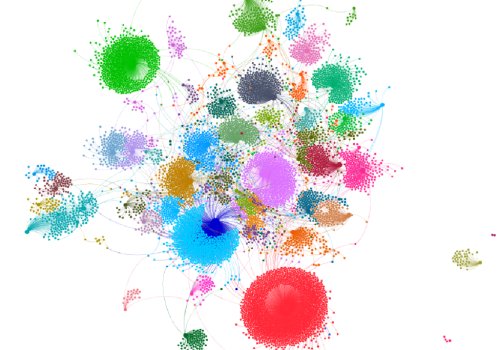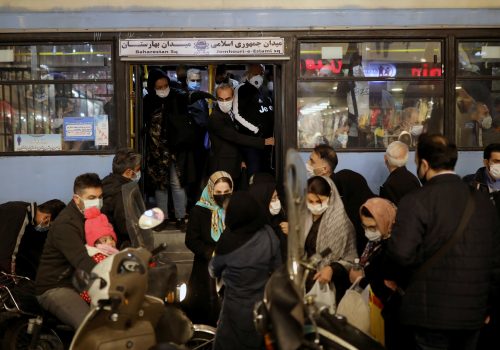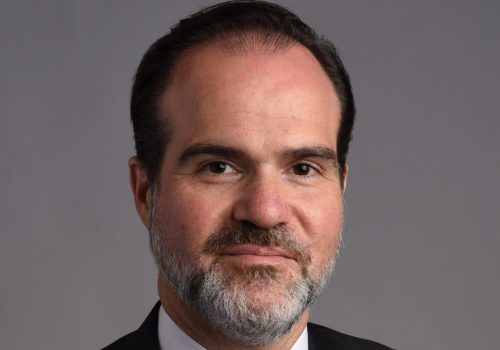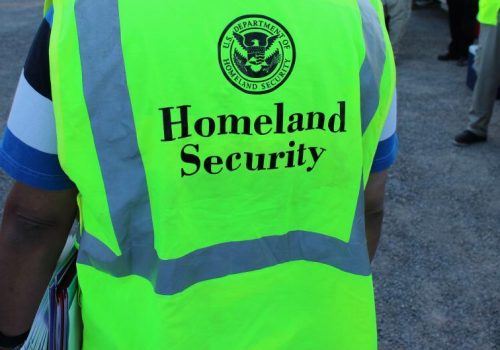The future is here: A guide to the post-COVID world 12/04/2020
Welcome to your guide to where the world is headed during the pandemic era and beyond. Each week, we’ll bring you the latest and most significant expert insights and international news about how coronavirus is reshaping international affairs. To stay updated each week, sign up to the newsletter here.
Let’s take a spin around the globe, in seven minutes or less.
In top stories this week:
- Pfizer’s coronavirus vaccine gets UK approval, putting more pressure on US regulators. Russia, meanwhile, has plans of its own.
- An economic upturn may be ahead, but it won’t be smooth sailing, the OECD warns.
- The holidays are here, but not as we know them. Even the Queen and the Duke of Edinburgh are scaling back their plans.
- But first, we have a special dispatch from Alyssa Harvie of the Atlantic Council’s Africa Center. Here’s her take on this week’s big story.
The big story
This week’s key theme: Great-power competition is threatening African ambitions and regional integration, but African leaders can do something about it
Since the end of the Cold War, major powers such as the United States, China, the European Union, and India have exerted influence across Africa, but these powers have rarely come head-to-head. In a post-COVID world, this may change: A scarcity of resources will accelerate competition among these actors and produce intersecting spheres of influence.
Subscribe to The future is here: A guide to the post-COVID world
Sign up for a weekly roundup of top expert insights and international news about how coronavirus is reshaping international affairs.

When worlds collide, who will come out ahead?
In some spheres, that competition has already begun: US officials have begun speaking of a “clear choice” between the United States and China, pushing countries to take sides. Some African nations will find themselves caught in the middle of this new Cold War mentality, which could threaten an emerging ethos of pan-Africanism. Whether these nations pursue their collective interests will determine the continent’s trajectory—toward a new African Century or another period of thwarted ambitions.
Great-power competition in the economic sphere will likely focus on 5G and technology expansion on the continent, the reshoring of supply chains, and debt relief. The United States is decoupling its technological supply chains from China, claiming a need to protect its national-security infrastructure. For African countries that already rely on Chinese telecommunications infrastructure, this could complicate their ability to deal even-handedly with both powers. Chinese-held African debt is also a point of contention. China’s soft-power gains on the continent could be overshadowed if Beijing does not satisfy African appeals for debt relief.
But sitting between competitors isn’t a powerless position: African leaders have more agency than they often get credit for. African countries, for example, are negotiating competitive debt relief and leveraging regional mechanisms developed during the COVID-19 crisis. (For more strategies for African leaders to resist competition for influence, check out our latest report, African Agency in the New Cold War.)
The bottom line: Even when confronted with heightened competition among major powers, African countries can increase their resilience and agency while avoiding the worst consequences of a new Cold War by focusing on collective, pan-African interests. When pressured to take sides, there is strength in numbers and collaboration.
The world in brief
Insights from across the planet, in ten bullets or fewer
- As the first to approve Pfizer’s vaccine, the United Kingdom faces new challenges. UK officials rushed to reassure the public that the vaccine is safe amid an increase in misinformation and conspiracy theories on social media, with Health Secretary Matt Hancock offering to get the shot live on national television, Bloomberg reports. A nationwide rollout will begin next week, the newswire adds. The European Union criticized the “hasty” UK approval, saying its own procedures were more thorough, Reuters reports.
- QUOTE: “I’m confident now, with the news today, that from spring, from Easter onwards, things are going to be better,” says UK Health Secretary Matt Hancock, the BBC reports. “And we’re going to have a summer next year that everybody can enjoy.”
- Pressure mounts for the US to roll out a vaccine, while Russia goes its own way. The US Food and Drug Administration is already facing pressure from President Donald J. Trump’s administration to approve Pfizer’s vaccine, but the UK vaccine approval may compound the pressure, The Washington Post reports. Meanwhile, Russian President Vladimir Putin said more than two million doses of the country’s Sputnik V shot will be ready for use in the next few days, Bloomberg reports.
- The OECD cautions that a rebound isn’t without its pitfalls. While recent developments with coronavirus vaccines offer glimmers of hope for global economic recovery, many potential pitfalls remain on the road to that resurgence, the OECD says. The international organization’s forecast predicts a strong rebound next year from 2020’s historic global downturn, the Financial Times reports.
- Meanwhile, China’s recovery is widening. Gauges of manufacturing and non-manufacturing have reached their highest levels in three and eight years respectively, showing a broadening recovery in the world’s second-largest economy almost a year after the pandemic started, The Wall Street Journal reports. China’s economy is slated to be nearly 10 percent bigger by the end of 2021 than it was two years earlier, thanks to its response to the pandemic.
- QUOTE: “As governments are preparing to roll out vaccines, criminal organizations are planning to infiltrate or disrupt supply chains,” says Juergen Stock, secretary general of the Interpol global police co-ordination agency, Reuters reports. “Criminal networks will also be targeting unsuspecting members of the public via fake websites and false cures, which could pose a significant risk to their health, even their lives.”
- North Korea takes to hacking pharmaceutical companies for COVID-19 data. At least six pharmaceutical companies in the United States, the United Kingdom, and South Korea that are working on COVID-19 vaccines have been targeted by North Korean hackers, The Wall Street Journal says in an exclusive article. Among them are Johnson & Johnson and Novavax, but it’s not known if the hackers got any useful information, the newspaper cites unidentified people as saying.
- The EU’s rift with Poland and Hungary is intensifying, Bloomberg says. The dispute centers on the two nations’ refusal to back a plan that links pay-outs from the bloc’s budget and pandemic-recovery fund to adherence to democratic principles, with most member states determined not to give in to Poland and Hungary’s demands to make changes to a 1.8 trillion euro spending package, the newswire adds.
- QUOTE: “Angela Merkel, now in her sixteenth and final year as German chancellor, is surely tempted to compromise with Hungary and Poland for the sake of rescuing a historic fiscal deal for the European Union,” Andreas Kluth writes for Bloomberg. “She shouldn’t.”
- The future of about 25,000 UK retail jobs hangs in the balance after the failure of two long-established companies—department store Debenhams and retail group Arcadia—exposed the fragility of much of the sector amid the pandemic, The Associated Press reports. Banks have suffered too: Lenders worldwide have announced the most job cuts in five years as the pandemic exacerbates the pressure on business models already disrupted by the digital revolution, as Bloomberg describes it.
- While Singapore and Hong Kong are delaying plans to jumpstart travel, Taiwan is getting more experimental. Singapore and Hong Kong have again postponed plans to start a bilateral “travel bubble,” this time until beyond 2020 as infections remain high in Hong Kong, CNBC says. In Taiwan, so-called COVID “passports” that show a person’s inoculation and infection history—although initially mooted as a way to get global travel underway—are hard to execute but a good idea, Reuters cites Taiwanese Health Minister Chen Shih-chung as saying.
- The holidays, but not as we know them. From a home-alone Christmas at Windsor Castle for the Queen and the Duke of Edinburgh, a first in thirty-three years, to a traditional festive pig getting a mask in the Czech Republic, the holiday season looks quite different this year. Meetings with Santa Claus have gone online in Hungary, while ski lifts in France, Germany, and Italy will be shut, with France imposing random border checks to deter skiing trips to neighboring Switzerland. And in Belgium, only one lucky guest invited to Christmas dinner can use the bathroom, if the government has a say in arrangements.
The inside scoop
Insights from the Atlantic Council
